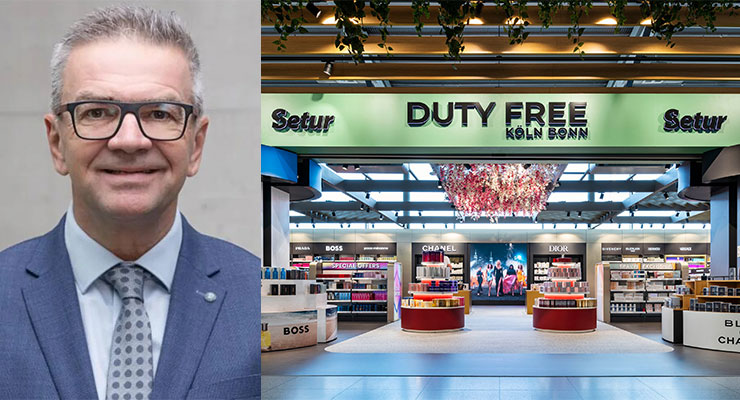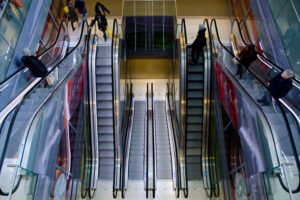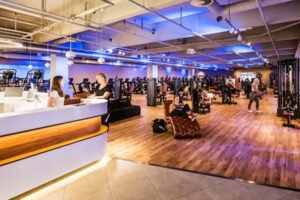ACROSS: How has the travel-retail sector at umdasch The Store Makers developed historically?
Michael Ripfl: Travel retail is not our largest revenue source. Our core business is rolling out projects for food retailers, supermarkets, automotive brands, and digital retail solutions. However, travel retail holds a special emotional significance for us, and we have developed in-depth expertise in this demanding segment over the past few decades.
Our beginnings go back some 30 years. Back then, we opened the first airport store at Vienna Airport with our business partner and customer, Rakesh Sardana. This was followed by the establishment of border stores in Northern Europe and the opening of the first location in Cologne, Germany. Through these projects, we developed extensive expertise early on in addressing the special requirements of travel retail, including security regulations, international target groups, and the design of retail spaces that appeal to travelers.
These initial areas were still reminiscent of high-end supermarkets, with their typical shelf structures. Today, on the other hand, they are worlds of experience with intense local color, interactive elements, digital customer journeys, and architectural sophistication. For me, it’s a renaissance of the large department stores that are only found in a few places, such as Galeries Lafayette or KaDeWe.
ACROSS: Where is a lot happening in the travel retail sector at the moment?
Ripfl: Europe is currently experiencing a remarkable dynamic. A new terminal is being built at Vienna Airport, for example, and investments are also being made in Frankfurt, Amsterdam, Copenhagen, Budapest, and Keflavík. In Amsterdam, Lagardère recently took over the entire duty-free area and is extensively rebuilding it. These developments are linked to the resurgence in travel activity. We are back to 2019 levels in air travel, and this is also noticeable in the expansion of operators.
ACROSS: How have the product ranges and consumer behavior changed?
Ripfl: Very clearly. The classic product range, i.e., tobacco and spirits, is becoming massively less critical. Tobacco is largely disappearing from the visual perception of stores, while local specialties and gift ideas are replacing alcohol. The new trend is called “Sense of Place”. Customers want to immerse themselves in a country’s cultural identity shortly before departure. In Vienna, for example, this could be a Grüner Veltliner, a local delicacy, or a handmade souvenir.
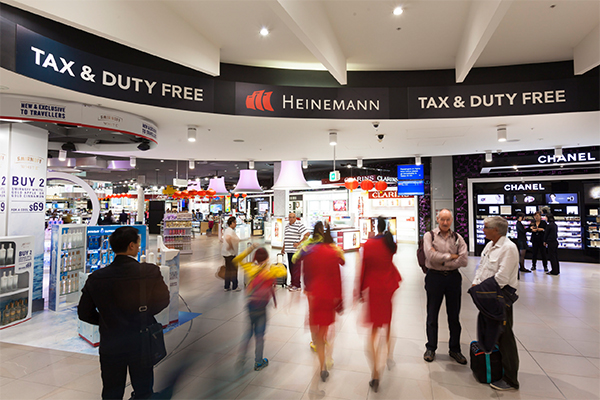
More about Travel Retail “made by” umdasch The Store Makers”: By 2035, Gen Y will account for the largest share of global spending on air travel, which is why travel retail must do everything it can to remain relevant to this target group. Millennials’ demand for experiences is also shaping their purchasing and travel behavior, forcing retailers to rethink their store design and marketing strategies. Together with the subsequent Gen Z – whose values are guided by topics such as digitalization, authenticity and sustainability – these generations are not only influencing retail in general, but also the concept of the airport of tomorrow. Learn more about “Five Travel Retail Trends Shapping Tomorrow’s Airport”
Naturally, travel retailers are responding to this customer need. Instead of standardized sales areas, experience-oriented concepts are emerging. The new Terminal 3 in Frankfurt demonstrates this with the motto “Germany on my mind”, where a stylized VW van serves as an architectural highlight. At airports in Switzerland and Brussels, for example, retailers are focusing on their chocolate culture, and chocolatiers are conjuring new creations on the spot.
Terms such as “experience-tricity”, an artificial word made up of “experience” and “centricity”, are gaining popularity. This means that the store should be an emotional and memorable hotspot, not just a purely functional point of sale.

ACROSS: Many people find airport prices high. How do you experience this as a shopfitting partner?
Ripfl: Airports are high-priced locations. Rents are correspondingly expensive, and operators have to pass these costs on. At the same time, we see that customers are prepared to pay more. The length of stay is high, as is the desire for rewards, after a business trip, for example. Anyone looking back on a successful business trip or seeking a souvenir for the family is typically less price-sensitive.
The airport is an emotionalized sales location: people have time, are in a buying mood, and want to do something good for themselves or others. This environment encourages impulse purchases. However, people also often buy spontaneously at the airport for logistical reasons. For example, if you are traveling with only hand luggage, you cannot purchase liquids such as wine or perfume in advance; you must buy them directly at the airport.
ACROSS: What role does technology play in travel retail?
Ripfl: An enormous one. Digitalization now permeates the entire customer journey. Some operators, particularly outside Europe, utilize customer data collected at the time of booking to target their advertisements for products and services. This is more challenging in Europe due to data protection regulations.
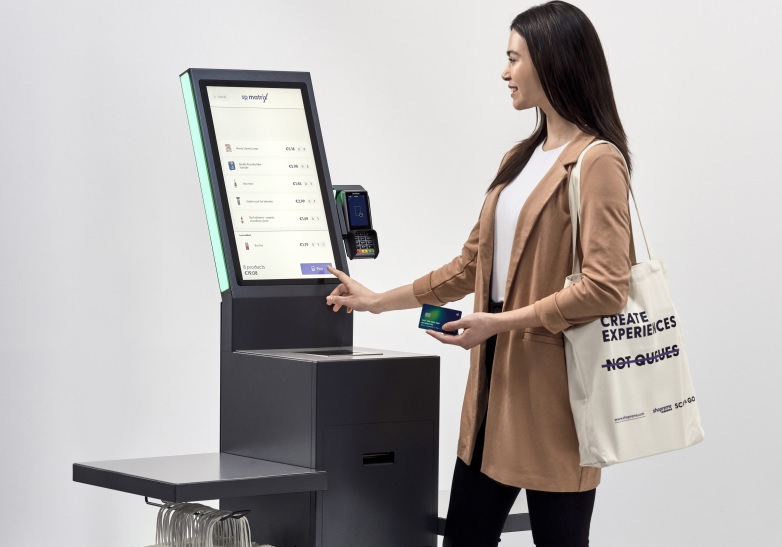
However, other technological trends, such as click-and-collect, self-scanning, and biometric payment processes, are also gaining ground at European airports. The aim is clear: to increase convenience and efficiency. Together with the Umdasch Group subsidiary “Shopreme”, we at Store Makers also offer innovative self-checkout solutions that provide travelers a self-determined and fast alternative in the often hectic environment.
Pop-up stores are also becoming increasingly important. They offer flexibility, allowing new brands or influencer products to be tested. One example of this is the Sol de Janeiro brand, which can be found in pop-up concepts at airports around the world. Shop-in-shop structures and changing concepts also offer customers variety and attention value.
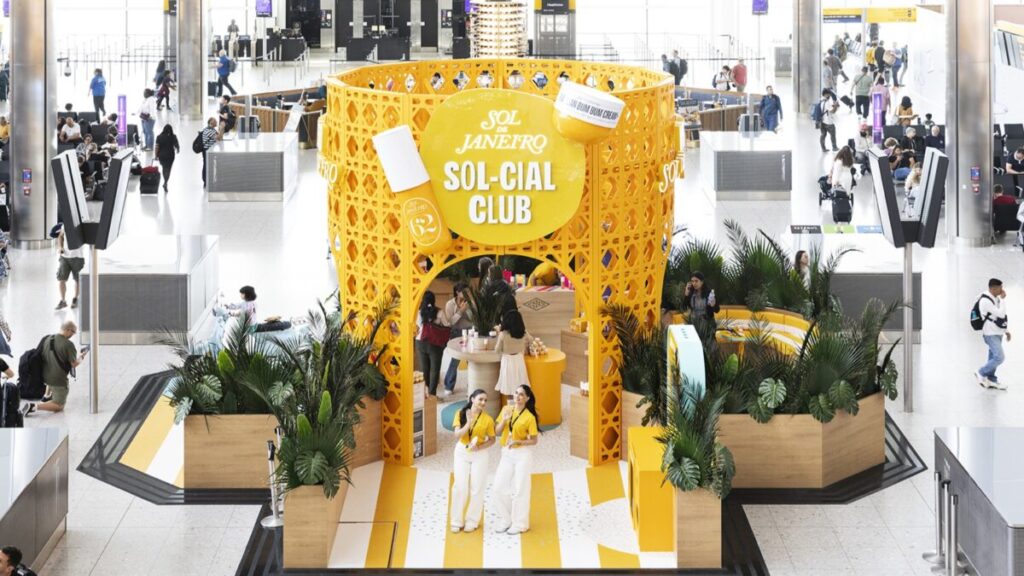
ACROSS: How does umdasch implement sustainability in travel retail?
Ripfl: We talk about “sustainable design”. This means that furniture must be modular, repairable, and reusable. We develop solutions that can be flexibly converted and reconfigured. We aim to make spaces reusable.
Furthermore, we also maintain our own “Material Library” – the so-called ECOlib – a database-supported library of sustainable materials for floors, walls, ceilings, and furnishings. Our colleagues keep it up to date so that we can always offer our customers an ecologically sound selection. Second-hand concepts (pre-loved stores) are also a topic, for example, for accessories or watches.
Sustainability also played a central role in our project for Setur, in many dimensions: The topic was considered holistically during concept development. It is not only reflected in the materials used or the variable furniture in terms of eco-design, but also affects the local planning, furniture production in Europe, the use of a regional network of artisans, and much more. The flooring used is low-emission, and the chipboard was made entirely from residual wood material. Additionally, the existing building fabric was optimally utilized: archways and frames were retained and clad, while the existing ceiling frame was left unchanged.
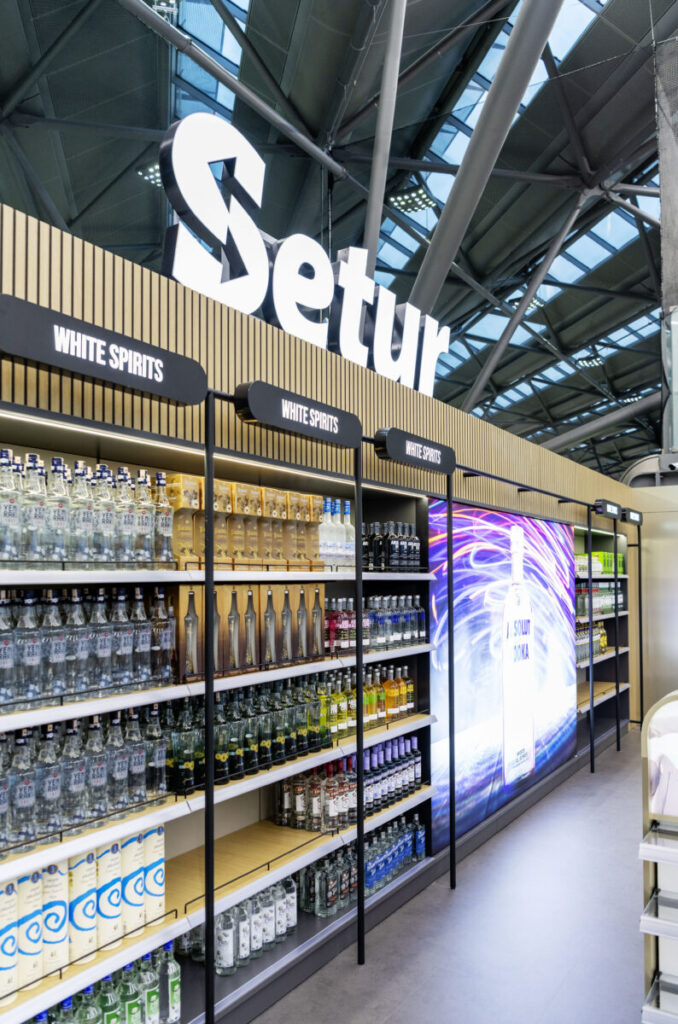
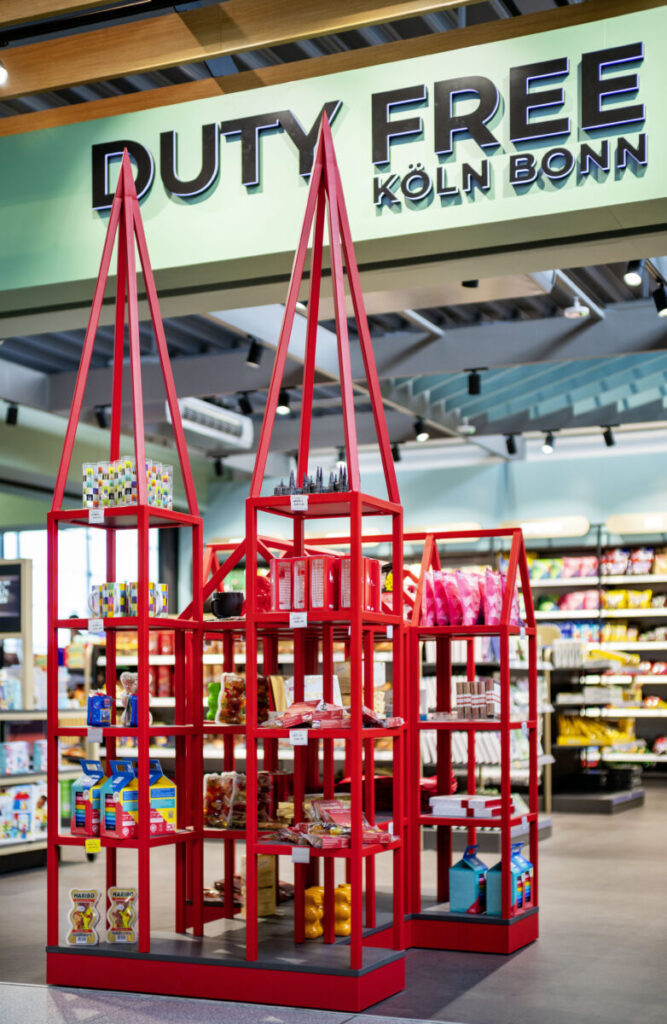
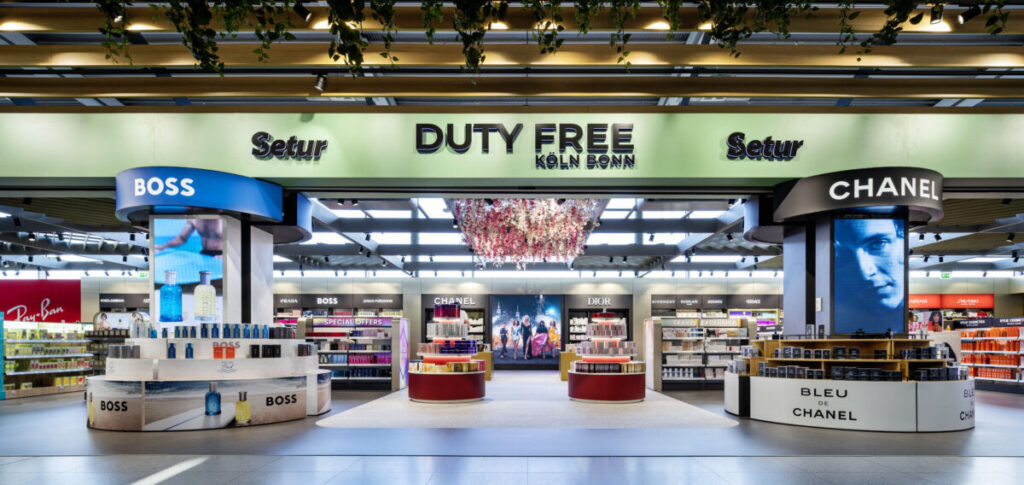
ACROSS: Of the many shopfitting projects you are working on around the world, which current ones do you particularly enjoy?
Ripfl: Some highlights we are particularly proud of:
- Heinemann Duty-Free, Vienna Airport (summer 2024): Focus on experience, regionality, modern design.
- “Miles & More & Duty Free Gebr. Heinemann” in the VIP Terminal Frankfurt Airport: A small, exclusive format for premium travelers.
- Duty-free store “Setur”, Cologne-Bonn Airport: Strong focus on the integration of local elements and sustainable materials. Cologne-Bonn can be felt in every corner here.
- “Smartseller”, Nuremberg Airport: gastronomy in the center, retail in the surroundings. A successful hybrid concept including an integrated beer garden.
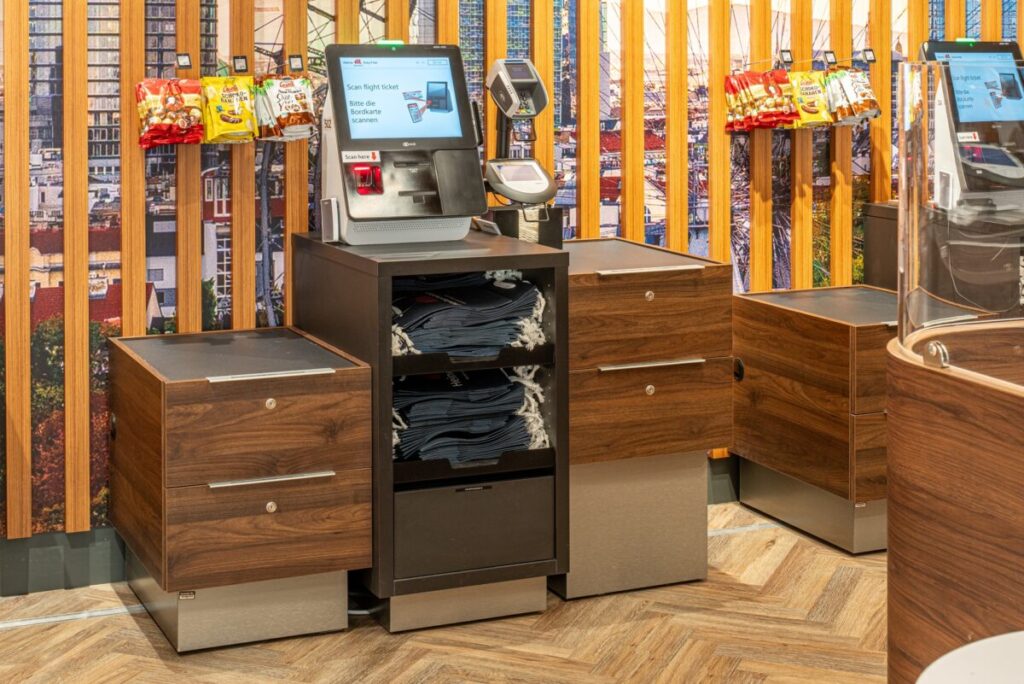
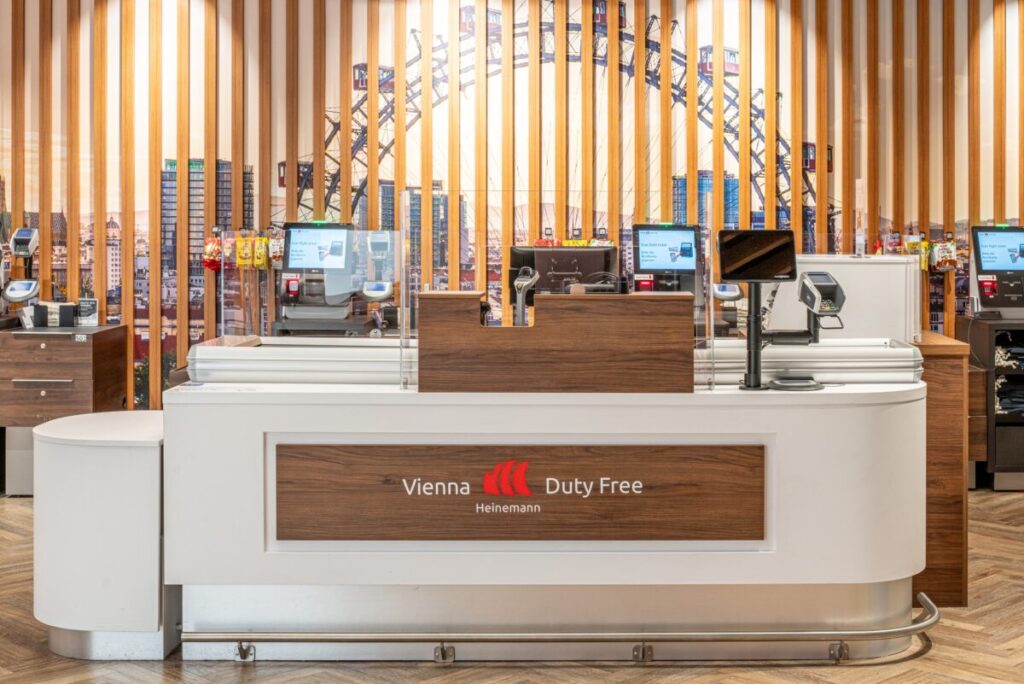
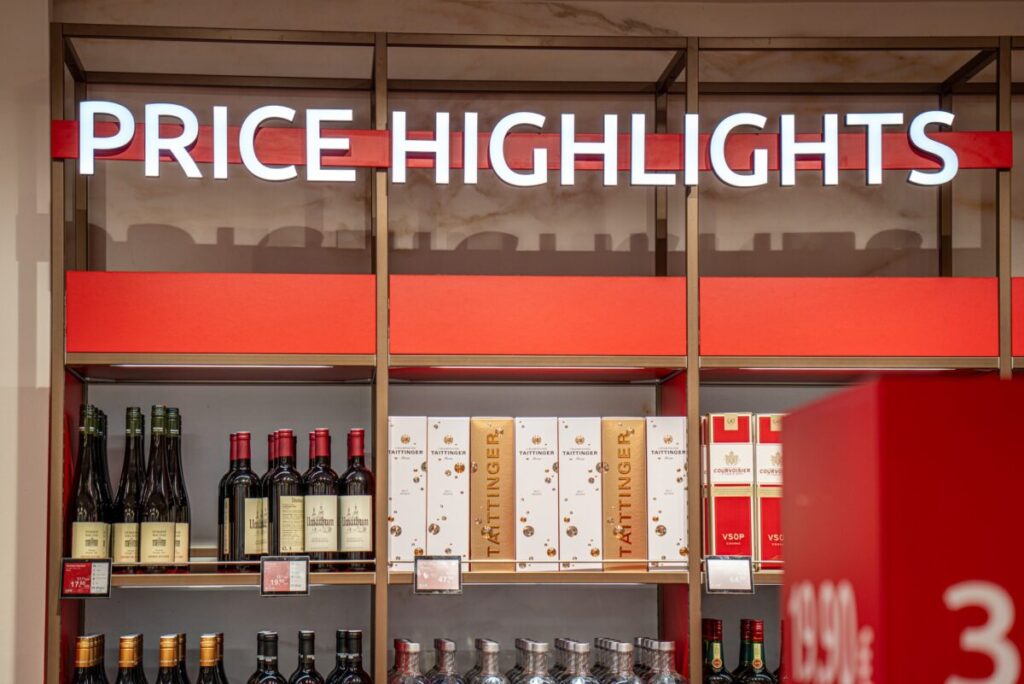
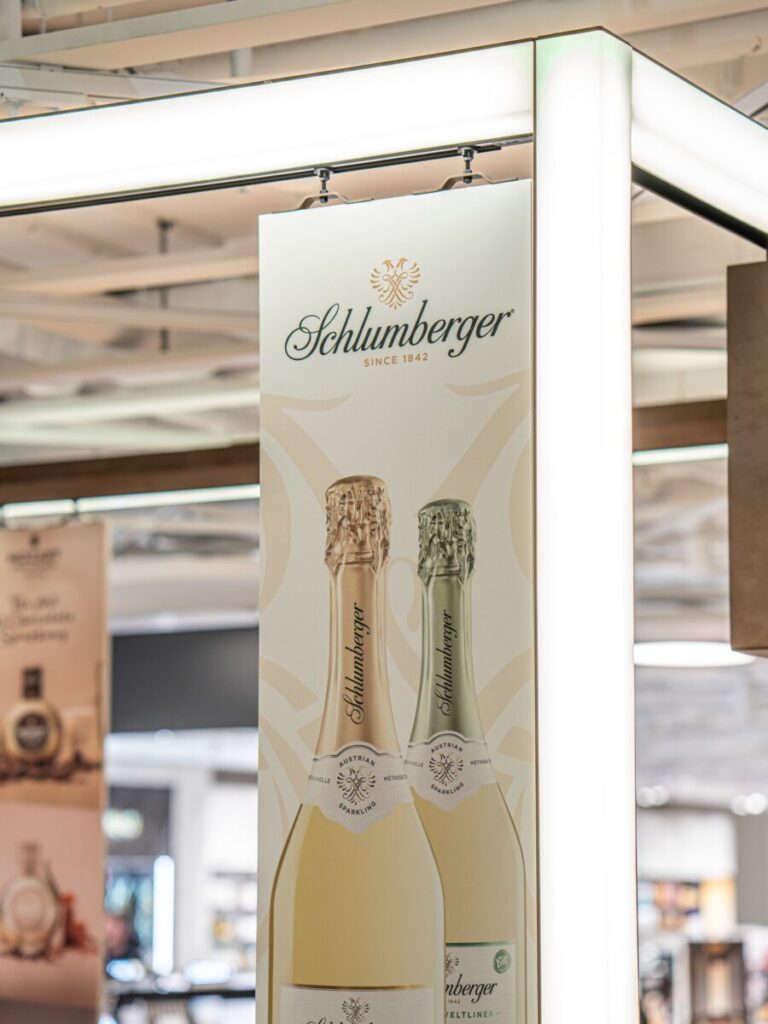
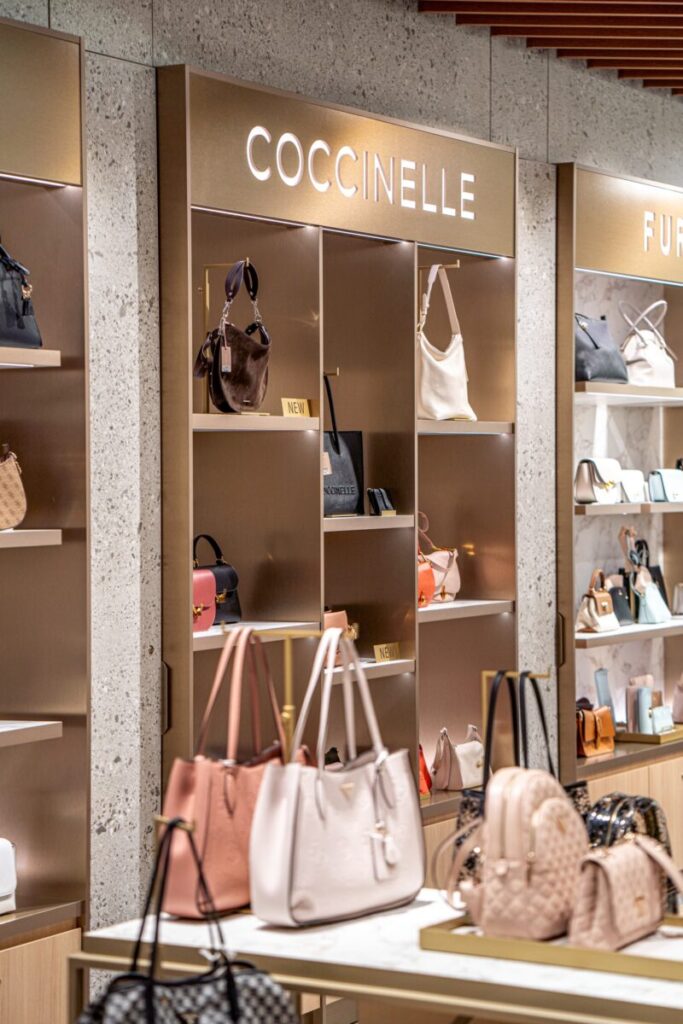
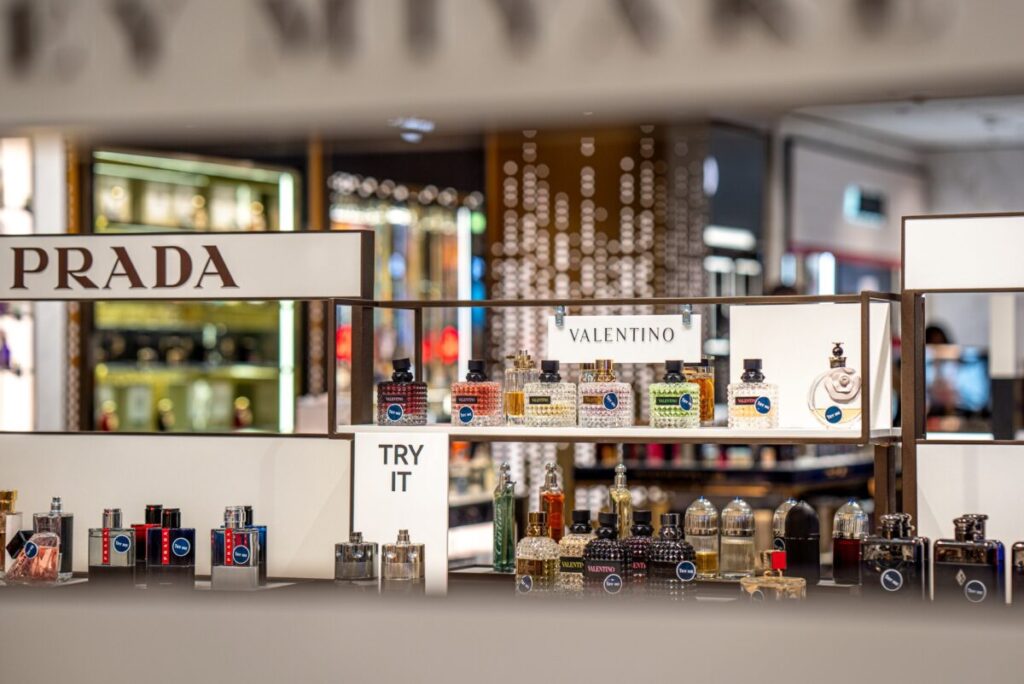
ACROSS: Where is travel retail heading, and what do you wish for the future of travel retail?
Ripfl: I would like to see even higher quality of stay, even greater local identity, and even more seamless integration of the digital and physical customer journey. It should be possible for me to be told in the cab or train to the airport: “Today there’s -10% off a new cosmetics line”, similar to what many Arab and Far Eastern operators are already doing. This type of intelligent networking would significantly enhance the shopping experience. This is precisely where we come in with our solutions at umdasch The Store Makers: We combine our decades of experience in shopfitting and travel retail with digital tools and sustainable design to turn transit spaces into holistic and genuine places of experience.
Incidentally, train stations could play a similar role, but they are currently still too dominated by traditional retail. However, I also see potential for retail innovation there if courageous operators break new ground.
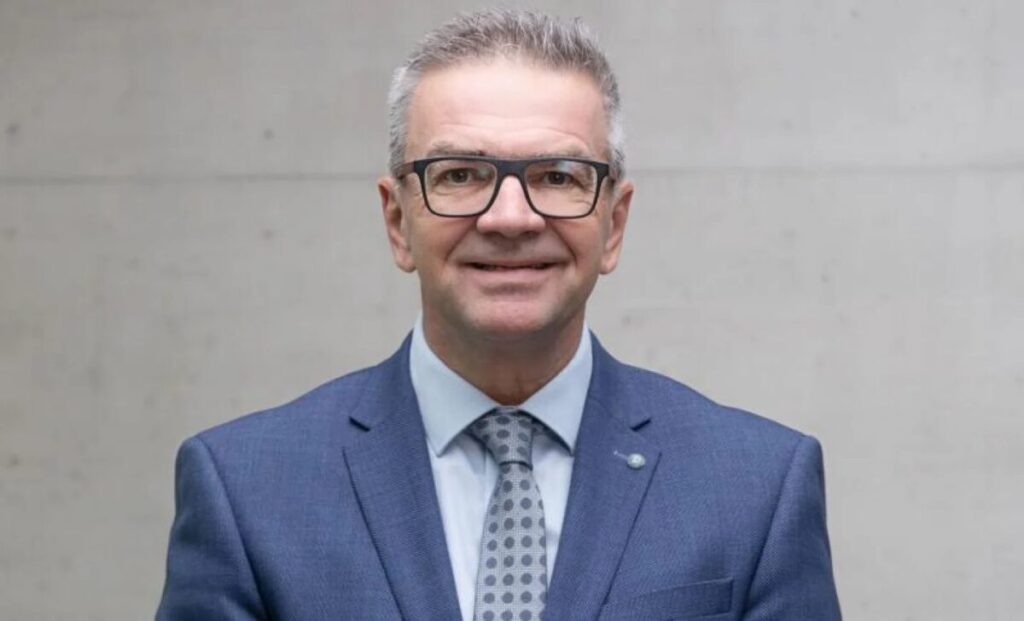
Michael Ripfl
For more than 30 years, Michael Ripfl has worked in in-store design and project realization with a global background on projects in Europe, China, Russia, and Africa. In 2017, he moved to the Middle East as General Manager for Global Brand & Travel Retail Projects at umdasch The Store Makers Middle East. In this position, Ripfl has managed all activities in the Kingdom of Saudi Arabia from the company’s office in Riyadh for the past few years. In July 2024, the manager returned to the head office in Amstetten, Austria, focusing primarily on projects in the Scandinavian region.

